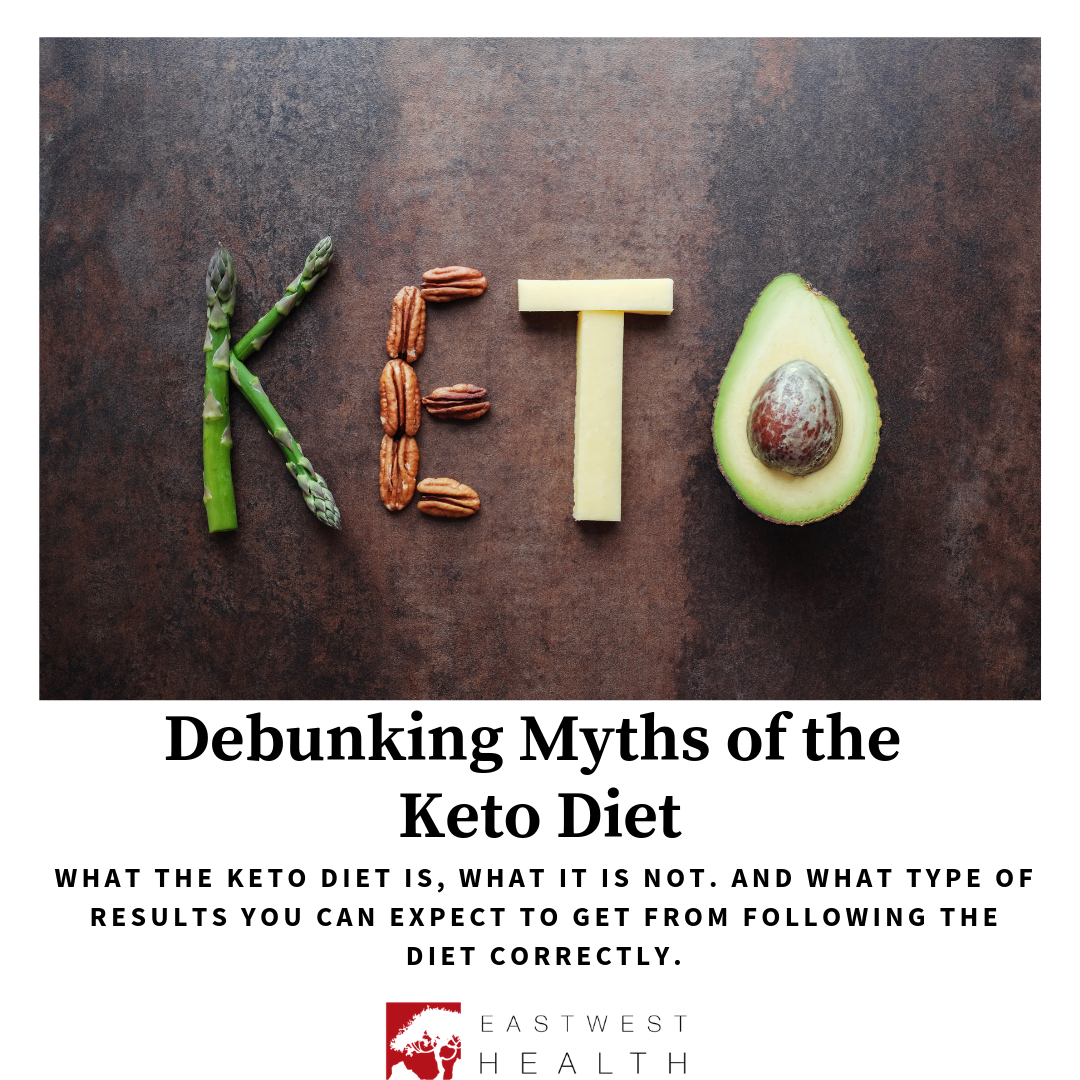
The ketogenic or “keto” diet, as it is more commonly referred to, has been getting a lot of traction lately. Whether its fitness gurus or celebrities, many people seem to be jumping on the keto train.
The keto diet is a very low carb, high fat diet. High fat doesn’t mean french fries and fried chicken. There is much more to the keto diet than meets the eye.
Read below as we debunk the myths that are oftentimes associated with the keto diet.
Myth 1: Keto diet is only for weight loss
There are many benefits that come from your body being in ketosis and weight loss is just one of them. This form of eating improve your cholesterol, blood pressure and blood sugar. All things that improve your overall quality of life.
Myth 2: Keto diet is a new, fad diet
The keto diet has been catching more attention lately, but it is not a new concept. If you dive into the science, you will find that the ketosis diet has been around since the 60s when it was being used to treat people suffering with seizures. This science was downplayed since there was a large push for a low fat or no fat diet since the 1950s.
Myth 3: You will lose muscle mass with the keto diet
People often assume that because you are not eating loads of protein on the keto diet, you are going to lose muscle mass. This is not the case. In fact, if you are eating too much protein, that protein will be broken down into sugars, which is not ideal for your body. The fats from the keto diet will not make you fat. What will make you fat are large amounts of carbs, proteins, and trans fat.
Myth 4: You will have low energy with the keto diet
The keto diet actually will give you more energy. The keto diet increases your mental clarity, reduces brain fog, and helps you feel more productive. The only time when the keto diet will make you have less energy is when you are not doing the diet right.
The Right Way To Reach Ketosis
Ketosis isn’t reached by eating a slab of butter for every meal or by eating ten pounds of bacon everyday. There is a methodical approach to the keto diet that ensures that your body is receiving all of the benefits that come from it and actually puts your body into a ketogenic state.
Our brains are made up of about 57% fat, 38% protein and about 5% carbohydrates. It only makes sense that the ratios of the nutrients that make up our brains should be the ratios of the nutrients that we put into our bodies.
If you want to stay in ketosis, about 60-70 percent of your calories need to come from a fat source. 5-10 percent of your diet should be carbohydrates and then 20-25 percent should be protein.
Our brains are wired to work on fats, sugars, and salts. Those are the three things that our brains love! The keto diet gives us the things that are brains and bodies are hardwired to love.
Ketosis can make our bodies feel better and perform better. If you are interested in having a ketogenic diet, be sure to ask a doctor if this is right for you!
To learn more about the ketogenic diet and its benefits, give us a call or visit one of our clinics.
